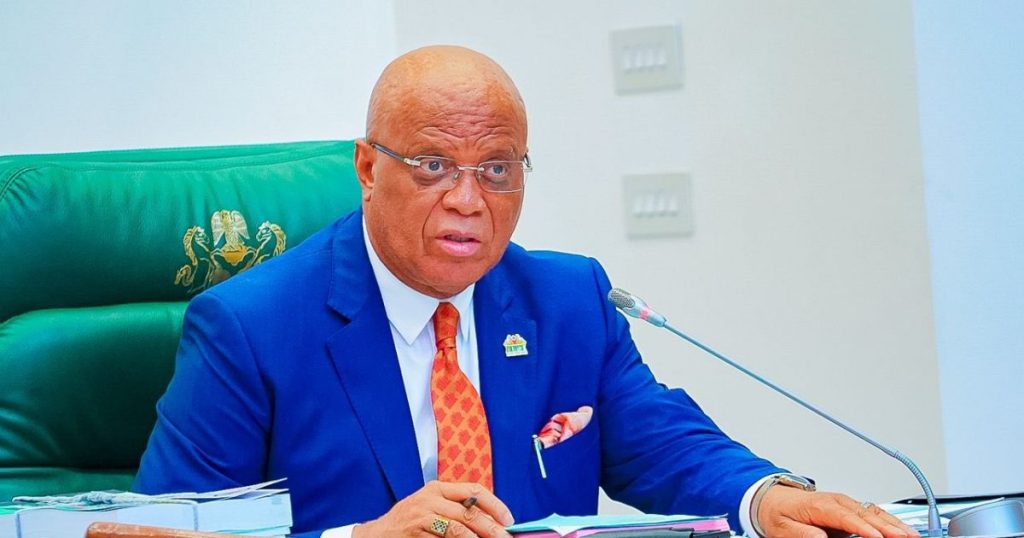Paragraph 1: Implementation of the New Minimum Wage in Akwa Ibom State
Governor Umo Eno of Akwa Ibom State has taken a decisive step towards improving the welfare of public servants by directing the implementation of a new minimum wage. Effective November 1, 2024, approximately 45,984 verified public servants will begin receiving N80,000 as their minimum wage. This action follows the meticulous work of the Committee on the Implementation of the New Minimum Wage/Personnel Verification, chaired by the Head of Service, Elder Effiong Essien. The committee’s report, submitted in early 2025, paved the way for this significant development in the state’s civil service. The governor expressed his gratitude to the committee for their diligent efforts and called for an extension of the verification exercise to encompass the state’s retired workers’ Pension Schemes.
Paragraph 2: Verification Exercise and its Outcomes
The personnel verification exercise, a crucial component of the minimum wage implementation process, yielded revealing insights into the state’s public service. Initially, the state government recognized a staff strength of 55,120 individuals. However, only 52,177 participated in the verification exercise, leaving 2,943 unaccounted for. Additionally, the committee identified discrepancies in the records of 6,193 personnel, requiring further investigation. The verification process, while highlighting challenges, ultimately allowed the government to accurately determine the number of eligible employees for the new minimum wage.
Paragraph 3: Governor’s Directive and Financial Implications
Upon receiving the committee’s report, Governor Eno promptly directed the Accountant General, Auditor General, and Director of Budget to prepare the necessary documentation for the implementation of the new minimum wage. He emphasized the importance of prioritizing the welfare of civil servants, recognizing their crucial role in the state’s administration. The governor expressed hope that the increased minimum wage would provide some relief amidst the prevailing economic challenges. This commitment to civil servants’ welfare underscores the government’s dedication to improving their living standards and boosting morale.
Paragraph 4: Addressing Unverified Personnel and Collaboration with Labor Unions
Governor Eno addressed the issue of unverified personnel, granting a 30-day grace period for the remaining 2,943 individuals to complete the verification process. Failure to comply within this timeframe would result in the cessation of their salaries, as they would be deemed non-civil servants. Furthermore, the governor extended a hand of collaboration to organized labor, emphasizing the shared responsibility for the well-being of Akwa Ibom State. He highlighted the government’s efforts to foster positive labor relations, evidenced by significant payments towards gratuities and various palliatives provided to workers.
Paragraph 5: Continuing Verification Efforts and Pension Scheme Scrutiny
Recognizing the importance of maintaining accurate records and ensuring the proper allocation of resources, Governor Eno accepted the committee’s recommendation to conduct annual verification exercises. This decision aims to prevent future discrepancies and ensure the integrity of the state’s payroll system. Moreover, the governor directed the committee to extend its mandate to include the verification of pension payments. This measure addresses potential issues within the pension system, particularly concerning payments made to deceased individuals.
Paragraph 6: Composition and Mandate of the Implementation Committee
The Implementation Committee on the Minimum Wage, established by Governor Eno in December 2023, comprised key stakeholders from various government agencies and labor organizations. The committee’s diverse membership ensured comprehensive representation and fostered collaborative decision-making. This inclusive approach reflected the government’s commitment to transparency and engagement with all relevant parties in implementing this critical policy change. The committee’s mandate focused on ensuring a seamless transition to the N80,000 minimum wage and addressing any potential challenges that might arise during the implementation process.


